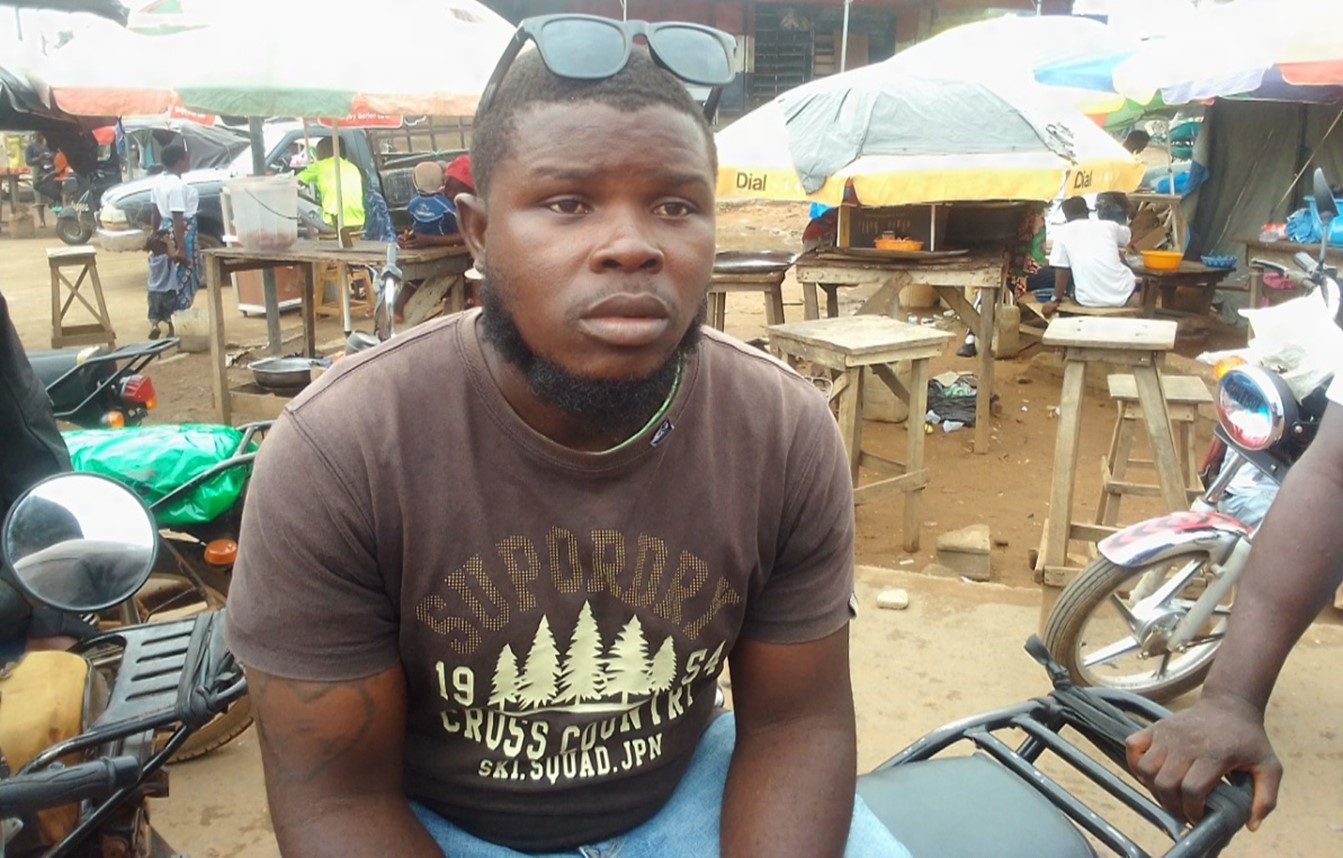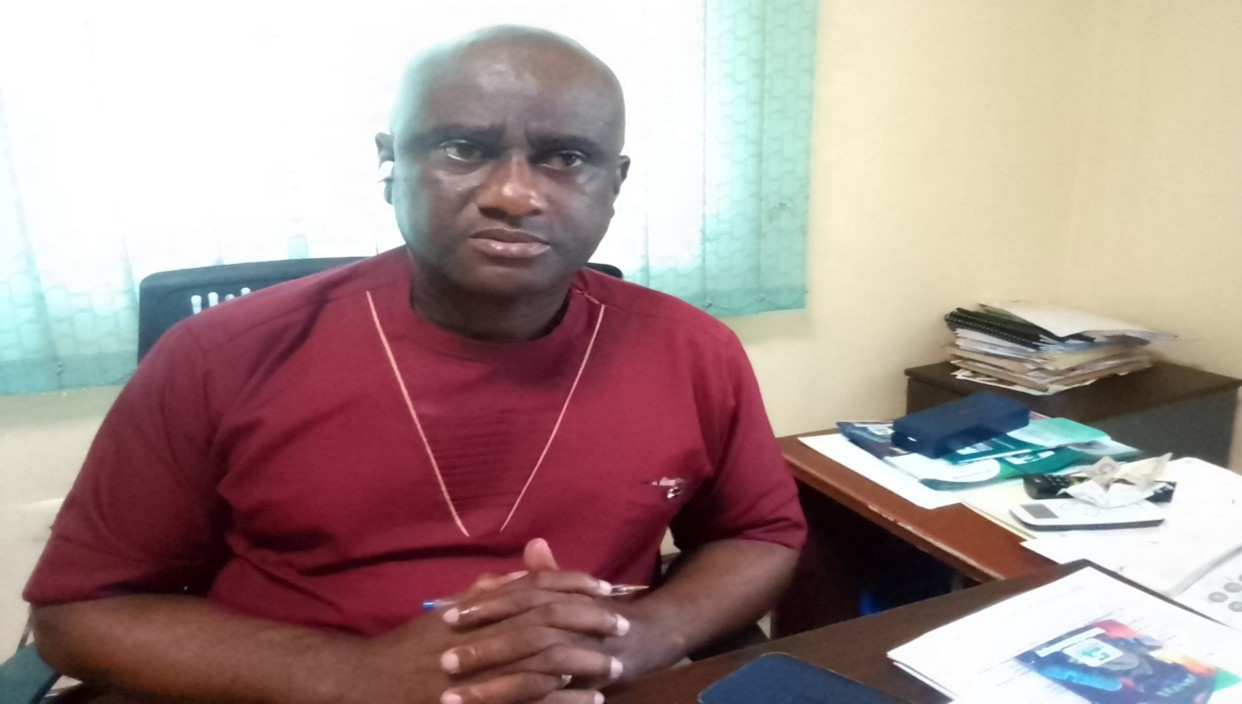MONROVIA, Montserrado—The Liberia National Police has issued new rules mandating all commercial motorcyclists to carry a third-party insurance policy. However, insurance companies may not yet be ready to insure commercial motorcyclists, whom they consider too risky a bet.
On May 9, Inspector General Gregory Coleman announced at a press conference that commercial motorcyclists would be required to register their vehicles with the Ministry of Transport and obtain insurance to operate. They will also have to operate with only one passenger, wear helmets, reflective jackets, protective shoes, and have a pair of view mirrors. Additionally, all motorcyclists must now be at least 18 years of age.
The motorcyclists had previously operated largely unregulated, with drivers not needing a license, insurance, or vehicle registration. Moreover, motorcyclists across the country generally operate without adherence to traffic laws.
Coleman said the new measures were being instituted for the safety of motorcyclists, who are “the most vulnerable when it comes to traffic.” Motorcyclists now have a three-month grace period to ensure they comply with the requirements before the police will start imposing penalties on violators.
However, the new mandate may face hurdles, given that most insurance companies in Liberia refuse to insure the nation’s riskiest road users. Representatives interviewed at two insurance companies said their companies do not currently insure commercial motorcyclists due to the high risk involved. Insurance companies want the police to start requiring motorcyclists to adopt safer behaviors before they start providing them with insurance.
A senior official at Activa International Insurance Company, who would only speak anonymously, disclosed that, while Activa currently does not insure motorcyclists, discussions are ongoing to ensure that they receive insurance coverage soon if the proper measures are put in place.
Meanwhile, Jackie C. Smith, head of the technical division for non-life insurance at Mutual Benefits Assurance Company, welcomed the government’s move to require motorcyclists to have insurance. However, he said motorcyclists would need to be trained on road safety measures and traffic regulations to make participation more attractive to insurance companies.
Smith said regular awareness and enforcement of traffic rules would reduce the high risk associated with commercial motorcyclists and reduce accidents and deaths.
“If those things are properly put in place, Mutual Benefits, as part of the Association of Insurance Companies of Liberia, I am sure we will all look at it from that perspective,” he added.
Jackie C. Smith, head of the technical division for non-life insurance at Mutual Benefits Assurance Company. Photo: George K. Momo
The police had previously announced no-go zones where motorcyclists would be restricted from traveling along specific routes, including Tubman Boulevard (from ELWA Junction to Central Monrovia) and along the Japan Freeway (from Red Light to Freeport).
However, the decision did not sit well with many commercial motorcyclists, and a nationwide protest by commercial motorcycles was scheduled for May 13. Amid growing tension between the police and motorcyclists, Luther Tarpeh, chair of the ruling Unity Party, asked Vice President Jeremiah Koung to intervene.
“I write to draw your attention to the growing tension between the police and the commercial motorcyclists since the proposed restrictions preventing them [motorcyclists] from accessing the main streets in Monrovia, beginning Wednesday, May 15, 2024,” Tarpeh wrote.
Although Tarpeh said the government’s measures were meant to promote safety and orderliness in Monrovia, its timing could be misconstrued as an act of ungratefulness to motorcyclists who he said voted for President Joseph Boakai in the 2023 presidential election.
Tarpeh appealed to the government to relax its initial plan to restrict motorcyclists and tricyclists across Monrovia. He told Koung that his intervention would prevent opposition politicians from capitalizing on the police mandate “to turn the people against the Boakai-led government.”
The resulting meeting between Koung, the police, and representatives of motorcyclist and tricyclist unions led to the police reverting from an outright ban to strict road safety measures for motorcyclists.
It appears that motorcyclists have welcomed the new move. For example, Konah Yarweh, a high school graduate who operates along the Japan Freeway, said he would have backed a sustained protest against any police plan to ban the motorcyclists. He saw the plan as “a calculated plot to bring poverty” to the motorcyclists who ride bikes to support their families.

Konah Yarweh, a commercial motorcyclist on the Japan Freeway. Photo: George K. Momo
He called for the government to work with insurance companies to ensure that motorcyclists can be offered coverage.
Despite the strong public reactions to the police plan to implement an outright ban on commercial motorcyclists along major transportation corridors, this is not the first time such a ban has been contemplated or even enforced. During the administration of former President Ellen Johnson Sirleaf, bikes were banned along major corridors, but the ban was lifted following the election of former President George M. Weah.
Featured photo by George Momo


